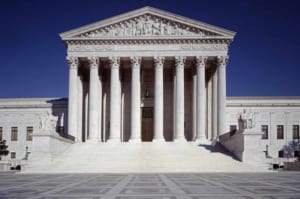Enterline and Partners recently represented a family of four in overcoming their 214(b) visa refusals at the U.S. Consulate in Ho Chi Minh City (“Consulate”).
The family, who formally held U.S. B-1/ B-2 Visitor Visas (“Visitor Visa”), had acquired Grenada citizenship by making an investment in order to gain benefits of having a second citizenship, including having the ability to have a maximum ten (10) year multiple-entry Visitor Visa. The family had previously applied and were issued several times one (1) year Visitor Visas; the maximum allowed for Vietnam passport holders.
During their first interview using their Grenada passports, the interviewing consular officer issued the family a 214(b) visa refusal on a number of factors, including the concern that the family lacked non-immigrant intent and would remain in the United States using their Grenada passports. Following the family’s refusal, our attorneys conducted an in-depth review of the family’s interview and believed that the family should be eligible for the Visitor Visas. Our attorneys reached out to the Consulate and communicated our concerns. Along with submitting the family’s new DS-160 Online Applications, arguments were made to demonstrate that the family had strong ties to Vietnam and should be eligible to receive their Visitor Visas in their Grenada passports. The family passed their second interview and were issued their 10-year multiple entry Visitor Visas in their Grenada passports.
For more information, please contact us at info@enterlinepartners.com and speak with a U.S. immigration attorney in Ho Chi Minh City, Manila and Taipei.
Copyright 2023. This article is for information purposes only and does not constitute legal advice. This article may be changed with or without notice. The opinions expressed in this article are those of Enterline and Partners only.
ENTERLINE & PARTNERS CONSULTING
Ho Chi Minh City, Vietnam Office
Suite 601, 6th Floor, Saigon Tower
29 Le Duan Street
Ben Nghe Ward, District 1
Ho Chi Minh City, Vietnam
Tel: +84 933 301 488
Email: info@enterlinepartners.com
Facebook: Enterline & Partners – Dịch vụ Thị thực và Định cư Hoa Kỳ
YouTube: @EnterlineAndPartnersConsulting
Website: http://enterlinepartners.com
Manila, Philippines Office
Tel: +63 917 543 7926
Email: info@enterlinepartners.com
Facebook: Enterline and Partners Philippines
Website: https://enterlinepartners.com/language/en/welcome/
Copyright 2023. This article is for information purposes only and does not constitute legal advice. This article may be changed with or without notice. The opinions expressed in this article are those of Enterline and Partners only.








